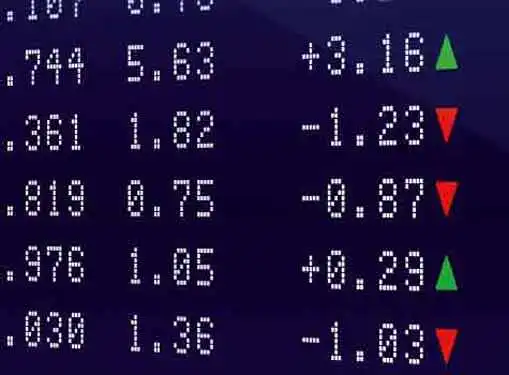Entrepreneurial Finance
Efficient Market Hypothesis
Written by Gregory Steffens for Gaebler Ventures
The belief that markets are efficient is central to modern-day economic theory. As an entrepreneur, it's important that you are at least conversant in efficient market theories.
With the amount of volatility in the current stock market climate, one may wonder just what determines a stock's valuation.

Presently, three forms of market efficiency exist that debate the types of information used to assess a stock's worth. They include weak, semi-strong, and strong market efficiency.
Weak Form
The weak form of market efficiency states that security prices reflect all information found from historical prices and volumes. Price changes result from the release of new information which arrives randomly.
Due to this reality, stock prices are said to follow a random walk which discredits any value gained from conducting technical analysis. Technical analysis attempts to discover patterns in stock price movements and then uses those patterns to predict future movements. The fact that randomly released information impacts stock prices dismisses the idea that patterns exist in the stock market. Moreover, if it were possible to distinguish patterns in the stock market, every investor would partake in the activity and all profits would be competed away.
Semi-Strong
The semi-strong form of market efficiency takes the weak form one step further by stating that security prices reflect all publicly available information.
This includes information found from past prices and volumes, information from published accounting statements, and information found in annual reports. Not only does this form discredit technical analysis but fundamental analysis as well.
Fundamental analysis aims to determine the intrinsic value of a stock by evaluating all factors that could affect its value. These factors include macroeconomic factors like industry and economic changes and organizational factors like management and operational efficiencies. Through determining a value for the stock, an investor could compare that value to the stock price and know whether it is overpriced or underpriced. The investor then could earn profits by buying, selling, or shorting the stock accordingly.
However, this information would be available to every investor, and, in turn, be fixed into the stock price making any abnormal returns impossible. With semi-strong market efficiency, the only method to earn above-average profits would require the action on and knowledge of insider information.
Strong Form
The strong from of market efficiency asserts that security prices reflect all information, public and private.
This integrates the ideas of weak and semi-strong efficiency in that any information pertinent to the stock that is known by at least one investor is incorporated into the stock price. Due to this, strong form efficiency implies the impossibility for investors to make abnormal returns regardless of the amount of research and analysis they conduct on a company. Even insider trading becomes unprofitable.
While each of these views is debatable and controversial for various reasons, the semi-strong form offers the most adequate representation of the market.
The strong form comes under scrutiny due evidence supporting the profitability of insider trading. The weak form loses support because of its exclusion of publicly available information affecting stock valuation.
However, opponents of semi-strong efficiency point to extremely successful investors like Warren Buffet, who has amassed billions of dollars through fundamental analysis.
The only explanation given by the semi-strong efficiency involves investors like Buffet being a statistical abnormality. They are viewed as an exception to the rule that accomplished their abnormal returns through luck or other unknown factors. However, a more likely explanation involves a variation of the semi-strong model or an emerging theory of behavior finance that will be discussed in a subsequent article.
Gregory Steffens is a talented writer with a strong interest in business strategy and strategic management. He is currently completing his MBA degree, with an emphasis in finance, at the University of Missouri.
Share this article
Additional Resources for Entrepreneurs

Conversation Board
Offer your comments, suggestions and questions regarding this article. We appreciate your participation!